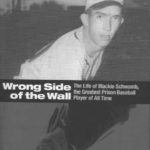After a long search for sports coverage to match San Quentin’s powerful interest in the subject, the S.Q. News thought it has scored big with the … [Read more...]
What’s the Point of Prison Sports?
Thanks to numerous volunteers and donations, San Quentin’s sports programs are thriving, despite severe budget cuts. Recreation and physical education … [Read more...]
16 Seasons of S.Q. Baseball
Elliot Smith has been coming into San Quentin with his team, the Oaks/Cubs, to participate in baseball games for approximately 16 seasons. In 2009, he … [Read more...]
Was He the Best Ever?
Sixty years ago, a former major league pitcher played baseball for San Quentin. He has been called the greatest prison baseball player that ever … [Read more...]

